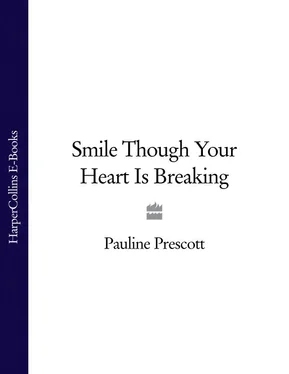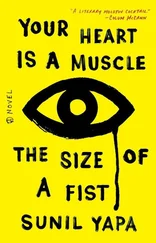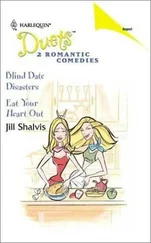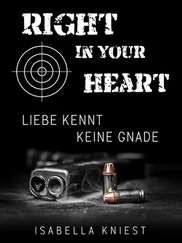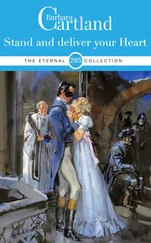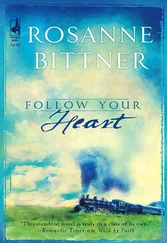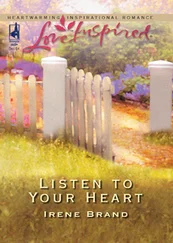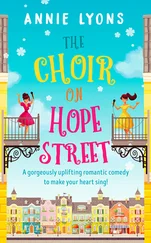Kneeling in the chapel that cold December morning, my swollen tummy pressed against the pew, I bowed my head. ‘Please God, let me keep my baby,’ I whispered, my knuckles white through the skin of my hands. ‘Don’t let them take it away.’
If my prayers could only be answered, that would be a million times better than any doll or any pram. It would be the best Christmas present ever…
I DON’T KNOW WHAT MY MOTHER’S CHRISTMASES WERE LIKE WHEN SHE WAS a little girl, but I don’t suppose they were much fun. Christened Minnie Irene Clegg but known to all as ‘Rene’, she rarely spoke of her childhood except to tell me that her father Joseph had died of war wounds when she was three, leaving her mother Ada to raise four small children.
From a devout Salvation Army background, Ada met another man and had six more children by him, making ten in all, although some died along the way. Sadly, the man Ada ended up with was a violent and abusive drunk, so my mother, her younger sister Ivy and her two brothers were sent into a children’s home and then into service. Auntie Ivy, who was known as ‘Little Titch’, was much taller than my mother who stood at just over five feet. Despite her diminutive height and the fact that there was only a year between them, Mum was ‘the boss’. The two women were so in tune with each other that they could sense if the other was unwell or in trouble. If one had an accident, the other seemed to a few days later. We named them ‘the Golden Girls’.
When Ivy moved to Southampton to take up a position in a country mansion owned by a lord, Mum had no choice but to remain in Chester where she had a job as a maid in one of the old houses owned by the Welsby family of wine merchants. She missed her sister terribly, even more so after Ivy married Len, a bus conductor and later had a daughter, my cousin Anne. In the privacy of her attic bedroom, my mum would shed tears for the sister from whom she’d never before been separated. Looking mournfully out over the rooftops, she’d wonder where Ivy was and what she was doing. On one such day, her eyes fell upon a good-looking young man clambering about on the roof of a hotel across the street. Spotting my mother in the window, he smiled and waved.
From that moment on, my mother’s mood lifted. Every chance she’d get, she’d run up to her room, heart pounding, to see if the handsome bricklayer was still working on the roof. Each time she saw him, she’d wave happily and he’d wave back. Eventually, he waited for her by her employer’s back door to ask her name. His was Ernest Tilston, and within a year they were wed.
Ernie was the youngest of twelve children, ten of them boys. Their father George, who was originally from Wales, became a Regimental Sergeant Major in the Cheshire Regiment during the First World War and sported a splendid waxed moustache. Ernie was such a good football player as a lad that he’d been offered a place with Tranmere Rovers but his father, a builder and master scaffolder, wouldn’t let him take it up and insisted he got a trade. Ernie’s brother Fred was a world-class boxer known as ‘Little Tilly’. Ernie worked for his dad and lived with his parents but once he and my mother were engaged, they began saving for their first home, a red-brick terraced house in the village of Boughton Heath, in the suburbs of Chester. They married when they were both just turned twenty.
A few years later in 1937, my brother Peter was born. I came along twenty months after that in February, 1939. My timing was just right because when I was seven months old, war broke out. I was very young but I can still remember bombing raids in Chester; hiding in ‘the glory hole’ under the stairs with Mum and Peter; eating emergency rations by torchlight. As a pupil at Cherry Grove School, I’d run to the concrete air-raid shelter with my Mickey Mouse gas mask with its sticking-out ears whenever the sirens sounded. I hated that horrible-smelling rubber mask. It made me feel sick every time someone clamped it to my face. After the school day was over, I’d play on the bombsites with my brother and his friends, using wooden doors that had been blown off their hinges as makeshift slides. It was all good fun until I got splinters in my bottom and my mother had to pluck them out.
My father enlisted in the Royal Marines and was posted to Scapa Flow in the Orkney Islands where many of the British battleships were based. Albert, one of my mother’s brothers, lived in Glasgow with his wife Nan and three sons so once, when my father was given leave, we took a train north to meet him there. German bombs rained on Glasgow too, especially the area round the river Clyde, but there was never a suggestion that we shouldn’t go and what a time we had. Being in Scotland felt like being on holiday and we’d never had a holiday before. Dad brought us enormous duck eggs from the Orkneys, which were such a luxury after years of powdered egg. In the local sweetshop he treated us to pear drops, strips of liquorice and humbugs that changed colour as you sucked them. Because of the sugar shortage, these were things we’d rarely had except as a monthly treat from the family ration book. One of my happiest memories is climbing the hills outside the city with Dad to pick some heather for Mum, my small hand swamped by his as he lifted me squealing above the carpet of purple flowers.
People couldn’t help but love my father. When he was in the Marines, he used to MC all the dances and shows, and was a popular member of their football team. He bore more than a passing resemblance to a young John Wayne and was a natural joker whose favourite comedian was Al Reed. Occasionally he’d repeat some of Al’s jokes, which could be a bit naughty. Mum would nudge him then and scold him with: ‘Ernie!’ When the war ended and we knew for sure that Dad was safe and coming home, we celebrated at a street party held locally for VE Day. There was bunting and cakes and jellies. Trestle tables lined the lane at the back of our house. A few days later, Dad came marching proudly down the street to the music of the band of the Royal Marines, which still moves me to tears each time I hear it.
After the war, Dad was offered a job as a master bricklayer for British Insulated Callender’s Cables, in the works’ maintenance department eight miles away in Helsby. They not only wanted him for his bricklaying skills but for their football team. Each morning, he’d put on his overalls, pick up his haversack with his sandwiches, and whistle to himself as he got on his old bike and set off to work. On Thursday nights he’d come home with his little brown wage packet and wander into a corner with it, my mother peering over his shoulder. If she wasn’t looking, he’d slip us a tanner each, especially if we’d done something to please him.
Once a month, Mum would check his pay packet and say, ‘But you’ve already opened your wages.’
‘Yes, Rene,’ Dad would reply. ‘I had to pay my union dues to the agent.’
Mum would nod and put the rest of his money away. I never knew what union dues were but I knew they were something my parents both took extremely seriously.
Although he seemed to like his job and got on well with his colleagues, my father preferred nothing more than to spend time with us. Every Saturday night he’d take us to the pictures. We always had to get there early and queue for the cheapest seats, right in the front row. He’d always buy us an ice cream in the interval and then we’d go home on the bus. Dad’s hero was Fred Astaire, so we saw all his films like Three Little Words and The Belle of New York. My favourite star at the time was Elizabeth Taylor, who at seven years older than me was the most glamorous young woman I’d ever seen in my life. I think I saw National Velvet three times.
Читать дальше
